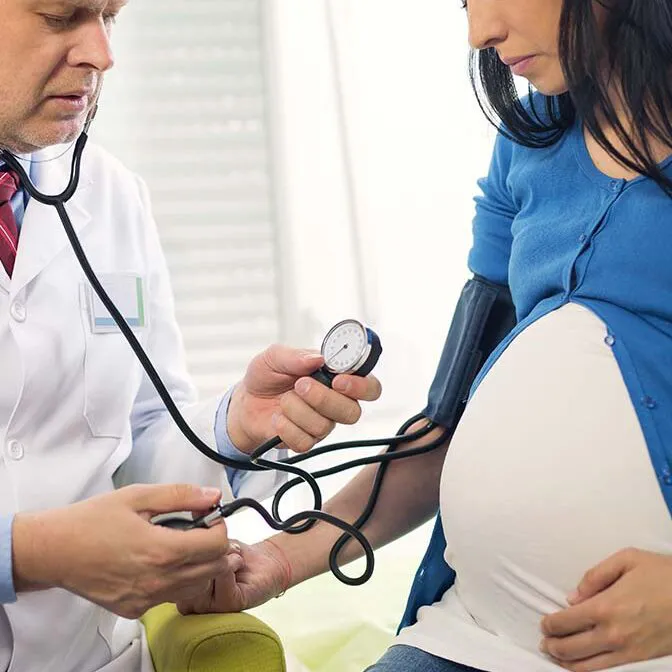
Published on: 16 November, 2022
Read Time: 3 min
About 10 percent of all pregnancies in the United States are complicated by high blood pressure. Good prenatal care and regular monitoring can go a long way toward getting high blood pressure under control. But in some cases, a more concerning type of high blood pressure may occur. This is known as preeclampsia.
Preeclampsia is a type of high blood pressure that develops after 20 weeks of pregnancy. It is also associated with signs of damage to other organ systems such as the kidneys, liver, blood or brain. It’s a condition that can be extremely dangerous to both mom and baby.
Warning signs of preeclampsia before delivery
High blood pressure generally has no symptoms. In fact, most people with high blood pressure do not realize they have it. That is why it’s important to attend all of your prenatal appointments. During these occasions, your blood pressure can be checked.
When symptoms of preeclampsia appear they may include:
- Severe headaches
- Changes in vision, including temporary loss of vision, blurred vision or light sensitivity
- Upper abdominal pain
- Nausea or vomiting
If you are experiencing any of these symptoms, make an appointment to see your OBGYN immediately. The goal is to keep your blood pressure low so that it doesn’t potentially cause pregnancy-related complications.
Warning signs of preeclampsia after delivery
Postpartum preeclampsia occurs when women have high blood pressure alongside excess protein in their urine soon after childbirth. Postpartum preeclampsia is rare but like its symptoms include
- Severe headaches
- Changes in vision, including temporary loss of vision, blurred vision or light sensitivity
- Pain in the upper belly, usually under the ribs on the right side
- Nausea and vomiting
- Shortness of breath
- Decreased urination
Most cases of postpartum preeclampsia develop within 48 hours of childbirth but it can occur up to six weeks or later after childbirth. If you notice any of these symptoms, speak to your doctor urgently.
Managing high blood pressure
If you have been diagnosed with high blood pressure over the course of your pregnancy, your doctor may suggest blood pressure-lowering medications. These medications are safe for the baby. Alongside any medications you have been prescribed, the following will also help:
- Attend all of your prenatal appointments
- Stop smoking if you currently smoke
- Stick to a healthy diet
- If your doctor says it is safe, then continue with low-impact exercises like walking or swimming
With good management, high blood pressure can be controlled. And if you have been diagnosed with preeclampsia or postpartum preeclampsia it’s extra important to be diligent about getting your blood pressure controlled. This will dramatically lower the risk of any complications occurring.
References
https://www.mayoclinic.org/diseases-conditions/postpartum-preeclampsia/symptoms-causes/syc-20376646





